How to Clear Criminal Record in the UK? (2024)
Quick Overview
Clearing a criminal record in the UK can improve job prospects, travel opportunities, and personal life. Understanding the process helps individuals navigate legal frameworks and rehabilitation periods.
This guide will walk you through:
✅ Criminal records document convictions, cautions, and warnings, with standard and enhanced levels
✅ The Rehabilitation of Offenders Act 1974 defines spent and unspent convictions and disclosure requirements
✅ Legal advice can guide eligibility, documentation, and application for expungement or record sealing
✅ DBS checks (basic, standard, enhanced) reveal different levels of criminal record information
✅ Expungement or record sealing can improve employment chances and ease travel restrictions
✅ Knowing your rights, obligations, and the exceptions to disclosure helps manage career and life opportunities effectively
It is crucial to understand the process of a clear criminal record in the UK to get a job, be able to travel to other countries, or get married! And that's what this blog will cover! We will address everything you need to know about removing criminal records in the UK, from the legal framework to the steps you should take, and what this will do to your future! Let's move forward to clean up your past now!
Understanding Criminal Record in the UK
Definition and Types of Criminal Records
A criminal record also stands for an official record of a particular person's criminal offences which are indicatives of its history. It contains information regarding all the convictions, cautions, reprimands and warnings that the police have in its database. A criminal record is any log and records of which a person is arrested or convicted of a criminal offence. A criminal record is captured by the police and used for background checks and investigation.
Types of Criminal Records
For example, there are two types of criminal records, standard records and enhanced records. Standard records include all convictions and cautions and enhanced records will also include all additional information including ‘police intelligence’ held by local police.
Impact of Having a Criminal Record on Employment
A criminal record can easily kill employment opportunities. Many companies conduct background checks and they won’t hire an applicant who has a criminal record, especially in finance, healthcare and educational sectors.
Impact on Travel and Personal Life
A conviction will stop you from travelling, especially to the USA where entry is so tightly controlled that you could find it almost impossible to get a visa subsequently, or even now, where you need to count very carefully the number of days you get for stamps in your passport against your entitlement to stay in the EU for as long as you wish to.
Social and Personal Consequences
On a social level, you might also experience the stigma attached to a criminal record, as well as be prevented from accessing certain services – for instance, if you were unable to register with an online dating site. In that sense, your entire quality of life can be restricted.
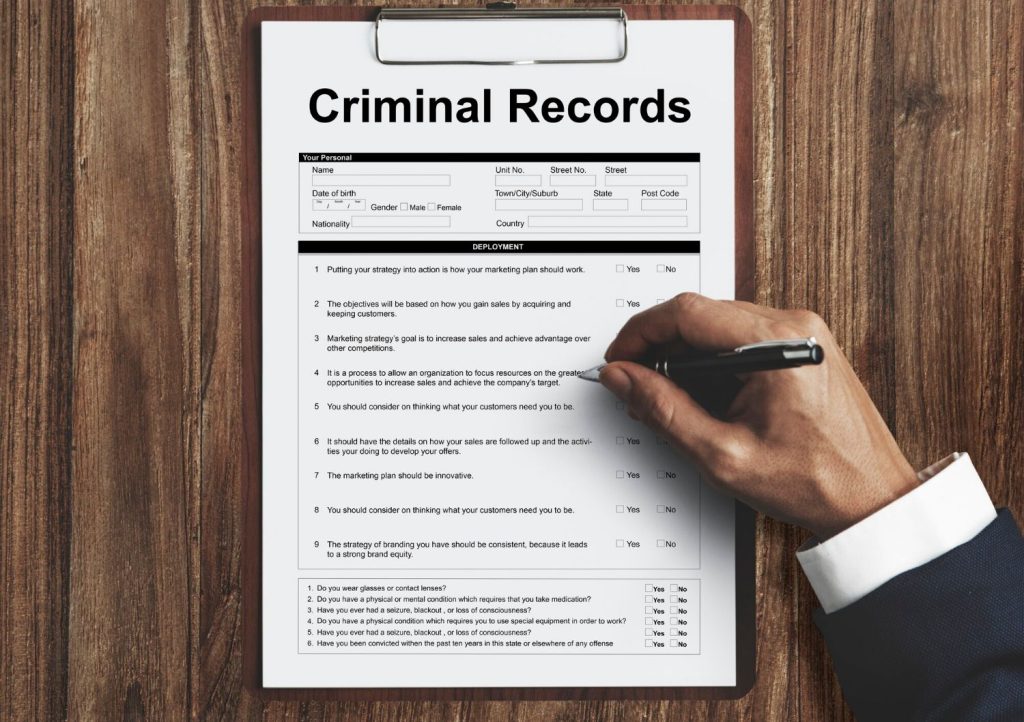
Introduction to the Concept of Record Clearing
People can petition to have previous criminal offences and convictions ‘expunged’ or cleared from their records. Expungement (or clearing) a criminal record can help break through the clear obstacles to restarting one’s life that criminal records create.
Benefits of Clearing a Criminal Record
It creates possibilities for better employment opportunities, fewer travel restrictions, and chances to improve the quality of your friendships and family relations. It can allow you to feel as though you’ve come full circle – able once again to take hold of your destiny.
Legal Framework for Clearing Criminal Records
There are laws in the UK which determine how to regain your good name after you are convicted of a criminal offence. These laws can either be general rules set aside for everyone or specialized for particular groups of criminals.
Relevant UK Laws and Regulations

Explanation of the Rehabilitation of Offenders Act 1974
The Rehabilitation of Offenders Act 1974 remains an important statute that renders certain criminal convictions ‘spent’ (ie, no longer having to be disclosed) following a particular period.
Spent Convictions Under the Act
A spent conviction is a conviction that, following an applicable period, is treated as spent and no longer disclosed as if it had never occurred. The amount of time it takes for an offence to become spent depends on the seriousness of the offence and is based on the sentence received.
Unspent Convictions and Their Implications
Untreated convictions are those that are still within their rehabilitation period and, until they become spent, they must be disclosed in all but the most limited circumstances – for instance, when you apply for a position of trust or authority.
Exceptions to Non-Disclosure
There are also exceptions to that general rule, which allows even spent convictions to be disclosed, such as when applying for certain jobs, licences or visas, and this reflects the rationale that those in positions of public safety should be appropriately vetted.
Introduction to the Concept of Spent and Unspent Convictions
The distinction between spent and unspent convictions is important – it can determine what you need to disclose and also when you’re able to omit information about your previous convictions.
How the Act Benefits Individuals
The Act’s purpose is to give people an official way to ‘leave their past behind’; that is, to reduce the long-term consequences of conviction for the rehabilitated individual.
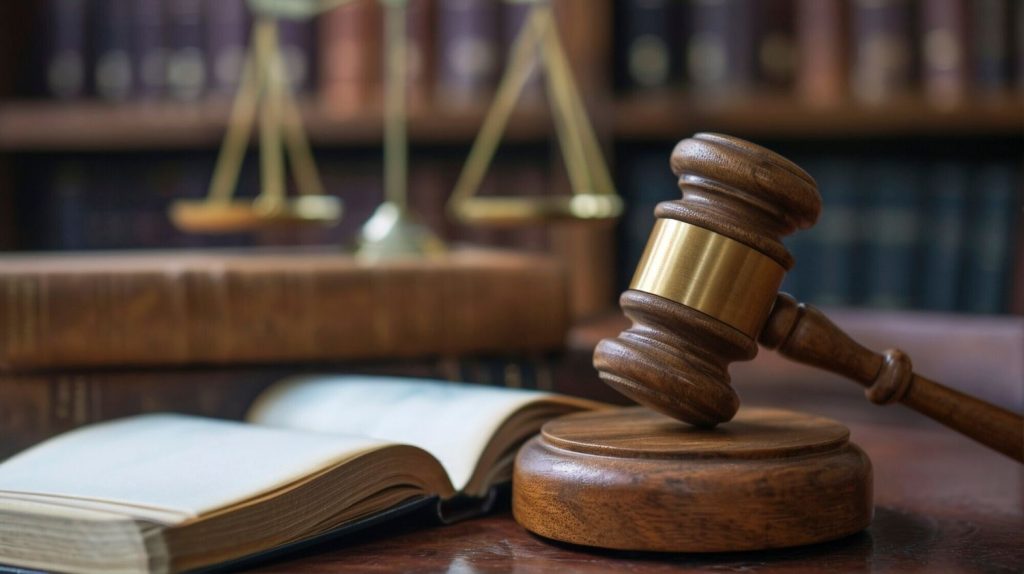
Legal Assistance for Clearing Records
Legal aid is useful for tapping into accumulated knowledge. For instance, if you need information about your criminal record, a lawyer specialising in criminal records can help you fill out the forms and follow the procedure correctly and as quickly as possible.
Role of Legal Advisors
Having a legal advisor on your side is a good call because they can help assess whether you’re eligible, prepare the homework you need, and then send off the application. They can further help in court to fight for you and increase your chances of success.
Potential Challenges in the Legal Process
The truth is that, in some jurisdictions, erasing a criminal record can be more difficult than the actual conviction. Legal frameworks may change or fail to keep up with newer laws, and petitioners face administrative delays. A basic understanding of the laws and an attorney’s help can provide a greater chance of success.
Steps to Clear a Criminal Record
Identifying if a Conviction is Spent or Unspent
Before going any further, the first thing to check is the status of the conviction – is it spent or unspent? Always check what the law says regarding the rehabilitation period of the offence of which you were convicted. Under the Rehabilitation of Offenders Act, certain offences are considered spent only after a specified rehabilitation period.
Understanding Rehabilitation Periods
The length of a rehabilitation period reflects the seriousness of the offence and the sentence, so if you received a custodial sentence, your rehabilitation period would last longer than if you had to pay a fine or perform some unpaid work in the community (a community order). Check what your conviction says about its status.

Using Online Resources
Check-in online and use the resources provided by the UK government to check the status of your convictions: Unlock has guides to check the status of rehabilitation periods and can give you a rough estimate of how long it will be till conviction is ‘spent’ through their calculator; the Disclosure and Barring Service (DBS) also provides tools and guidance.
How to Apply for a Basic, Standard, or Enhanced DBS Check
DBS checks reveal information about your criminal record: there are three types, known basic, standard or enhanced. Each covers a different level of detail and can be used in different circumstances.
Applying for a Basic DBS Check
At the lowest level is a basic DBS check that is frequently used by organisations that employ individuals – such as care workers – who do not work with identified vulnerable people. This type of check includes details of any unspent convictions and can be applied for online via the DBS website, or through a registered body.
Applying for a Standard DBS Check
A standard DBS check will reveal any spent and unspent conviction, caution, reprimand and warning, and is often carried out through your employer or via a registered body.
Applying for an Enhanced DBS Check
A higher DBS check is expanded to include entries from local police records. It is used for any roles that involve work with vulnerable groups, such as children or the elderly and is also only applied for by an employer or other organisation.
Process of Applying for Expungement or Record Sealing
‘Expungement’ or ‘record sealing’ refers to sealing off, expunging or otherwise keeping generally part of a criminal record beyond the eyes of the public. This varies based on the nature of the conviction and its standing.
Eligibility for Expungement
Not all convictions can be expunged; eligibility requirements depend on the nature of the conviction, the sentence that was imposed, and how much time has passed since the conviction. Contact a lawyer or look online to see whether you’re eligible for an expungement.
Filing an Application
You start the process for expungement by filing a formal application with the appropriate authorities, presumably providing photographs, details of your record and evidence of rehabilitation, as well as supporting testimonials if given the opportunity.
Necessary Documentation and Evidence
Gather any records about the charges – such as police reports, court records, character references – plus any evidence that shows you have been rehabilitated, such as completion of educational programmes or community service.
Step-by-Step Guide to Submitting an Application
Research Eligibility: Confirm that your conviction is eligible for expungement.
Gather Documentation: Collect all required documents and evidence.
Prepare the Application: Complete the necessary forms accurately.
Submit the Application: Submit your application to the appropriate legal body.
Follow-up: Monitor the progress of your application and provide additional information if requested.
Seeking Legal Advice
You can also hire an attorney to help you through the process and understand the legal requirements for expungement, fill out the application, and, if necessary, represent you in court.
Spent Convictions and Disclosure
Definition of Spent Convictions Under the Rehabilitation of Offenders Act
A spent conviction need not be disclosed after a certain rehabilitation period. The Act sets out the circumstances in which convictions become spent, and the periods that need to elapse before this happens.
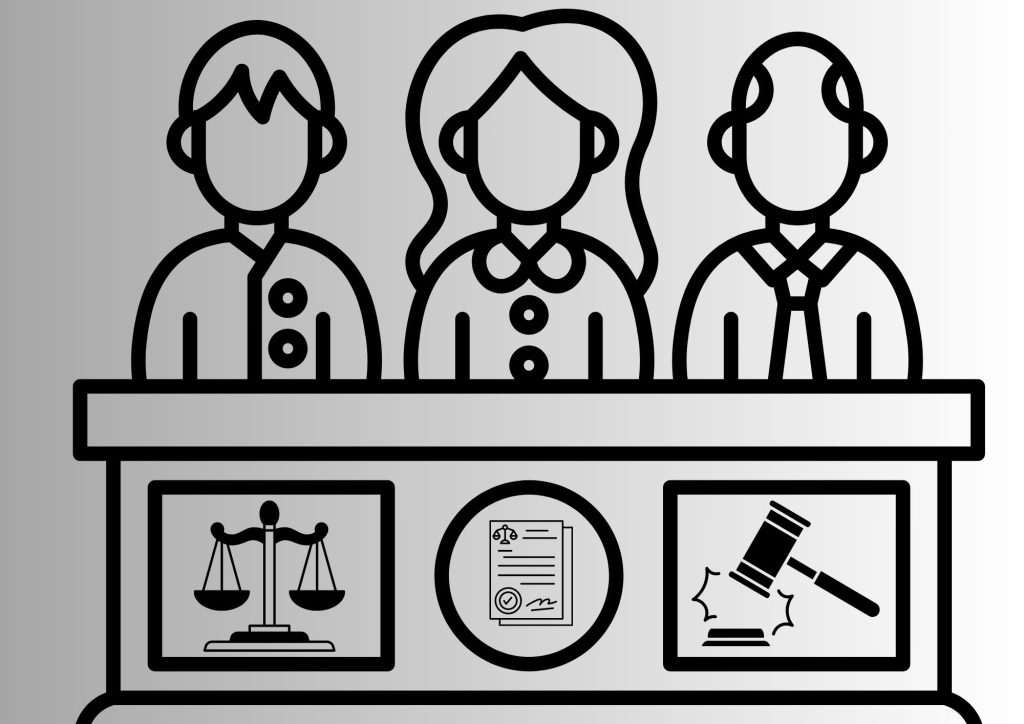
Timeframes for Different Types of Convictions to Become Spent
The length of time it takes for a conviction to become ‘spent’ depends on the amount of punishment involved with the offence: some fines might only take one year to become spent, while a sentence of six months’ custodial imprisonment might take seven years.
Spent Convictions for Minor Offenses
Lesser offences, such as a fine or community service, usually have a shorter period for rehabilitation, and a lesser offence may well be spent in a matter of years. The person can move on.
Spent Convictions for More Serious Offenses
And more serious misdemeanours – especially those leading to custodial sentences – have longer rehabilitation periods. I hope that this article helps in understanding these timescales and managing disclosures and applications to have convictions struck off.
Circumstances Under Which Spent Convictions Must Still Be Disclosed
Although most spent convictions do not require disclosure, there are exemptions. Certain applications for jobs, licences and immigration rely on notification of spent convictions.
Jobs Requiring Disclosure of Spent Convictions
Because of this, some jobs will not hire you with a criminal record ie; in caretaking, teaching and certain medical fields, as well as certain government sectors including many national security leads.
Legal Exceptions to Non-Disclosure
Legal exceptions to non-disclosure are found in the roles listed in the Rehabilitation of Offenders Act 1974 (Exceptions) Order 1975, with those stepping into these sensitive roles rightly coming under the closest possible scrutiny.
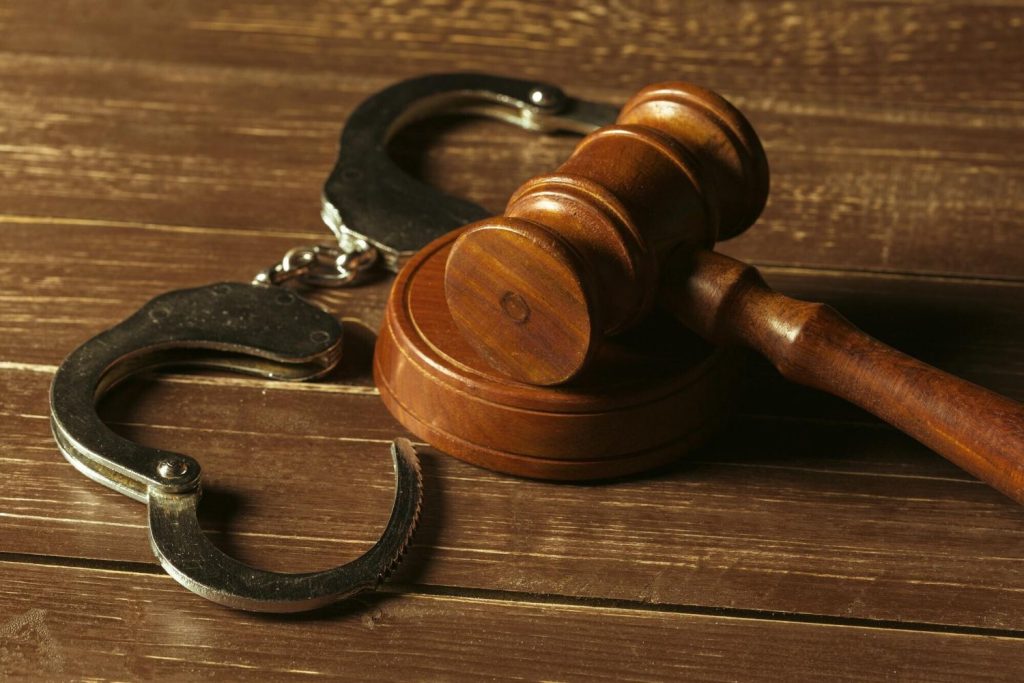
Understanding Your Rights and Obligations
If you have spent convictions, it is important to familiarise yourself with the rules about disclosure. This will ensure you accurately know when you must disclose, and when you can legally withhold your criminal record.
Seeking Guidance for Complex Cases
If you have a complicated situation or need more detailed disclosure information, speak to a legal adviser or organisation that deals specifically with criminal records. They can help by providing you with advice about your circumstances.
Unspent Convictions and Exceptions
Explanation of Unspent Convictions and Their Implications
Unspent convictions are those which fall short of this time and remain subject to the terms of the Rehabilitation of Offenders Act 1974 – in other words, the length of time they need to sit on your record before you can legally be treated as having been rehabilitated in any individual circumstances (ie, for a given employment application or a disclosure request).

Impact on Employment and Personal Life
Unspent convictions can close certain employment opportunities, especially jobs in sectors that demand a clean record. They can also limit your prospects for travel or volunteering or can impact the granting of licences. It is important to understand what unspent convictions mean, and how they might be disclosed.
Timeframes for Unspent Convictions
The period of unspent convictions depends on whether the sentence was a custodial or community one. A short custodial sentence might not be spent for many years, but a community order may have a shorter period. Planning your route to a clear record needs to know when these periods end.
Specific Jobs and Roles Requiring Disclosure of All Convictions
Other professions and roles do require disclosure of spent or unspent convictions. These jobs often entail working with groups of society who are considered vulnerable or involve undertaking a post in a high-security environment.
Jobs in Healthcare and Education
For example, people who work in social care and teaching might need to have enhanced DBS checks done, which means that they must declare all convictions, to protect vulnerable people who might be in contact with them.
Roles in Financial Services and Law Enforcement
Jobs in the financial sectors, police work and many others with sensitive responsibilities require criminal disclosures because these jobs are based on trust and credibility.
Legal Exceptions to Non-Disclosure of Spent Convictions
Even spent convictions have to be disclosed in certain circumstances. Legal exceptions mean that employers and authorities can assess the trustworthiness of job applicants or volunteers for certain roles.
Understanding the Exceptions Order
Exceptions to non-disclosure are set out in the Rehabilitation of Offenders Act 1974 (Exceptions) Order 1975. The Act is a list of occupations where, for reasons of public safety and trustworthiness, full disclosure of a conviction is required.
Implications for Professional Licenses and Immigration
But some professional licences – such as those related to medicine, social work and finance – as well as some immigration applications, ask about spent convictions. Getting a handle on the exceptions can help you make informed decisions about disclosures and avoid trouble with the law.
Seeking Legal Advice for Complex Situations
To clarify the position in more complicated circumstances with unspent convictions (and concessions), you should consult a solicitor. You can determine your rights and legal obligations relating to disclosure once a solicitor has examined all the circumstances.
Applying for Expungement or Record Sealing
Detailed Process for Applying for Expungement or Record Sealing
The process to apply for expungement or record sealing – which erases or limits access to portions of a criminal record – is quite detailed.
Understanding Eligibility Criteria
Make sure that your conviction is eligible for expungement or record sealing before you apply. Eligibility varies depending on the nature of the crime, the sentence and how long since the conviction.
Necessary Documentation and Evidence
Collect as many documents as you can in support of your application: your court documents, the police reports on your conviction or arrest, reports showing that you completed any rehabilitation programs, and letters of reference. Include as many of these as you can find, because they all contribute credibility to an application for expungement.

Court Records and Police Reports
Acquire copies of your court records and police reports for the same incident that led to your conviction. These records will not only form the basis of your application but they will also corroborate the facts of your case.
Evidence of Rehabilitation
To show that you have reformed, you also need to prove evidence of rehabilitation, such as having completed educational programmes, done community service, had an employment history, and made personal statements.
Character References
Supporting evidence from employers, community leaders or mentors attesting to your good character and the changes you’ve made in your life since you’ve been convicted can be used for the application.
Step-by-Step Guide to Submitting an Application
Research Whether Your Conviction Qualifies: When do you qualify for expungement or record sealing in your state? Determine your eligibility here. Eligibility is dependent on the details of your conviction record.
- Collect Information: Collect all documentation, including case files, police reports, and evidence of rehabilitation.
- Apply properly: You must follow the application instructions minutely, fill out appropriate forms, and provide full information on conviction and rehabilitation.
- Application: Fill in the application and send it to the legal office that deals with it, along with the cited documents and the fee.
- Go To Court: Go to court hearings when your request is submitted and present your case. You must bring more documentation than you originally provided and answer questions about the request.
- Follow-up: Track the status of your submission and respond to any further information requests.
Seeking Legal Assistance
You may want to consult a lawyer to assist you with the expungement process, as a lawyer can advise you on your likelihood of success and help you craft a compelling presentation. A lawyer can also represent you in court (should that be necessary) and assist you with the more complex aspects of expungement law.
Legal Costs and Financial Assistance
Pay attention to the possibility that expungement could come with legal fees. Some people might be eligible for indigent services or pro bono legal representation to cover those fees.
Seeking Legal Assistance
Benefits of Seeking Legal Advice for Clearing a Criminal Record
Consider obtaining legal advice, which is usually money well-spent. It could be the difference between success and failure. Legal professionals know exactly what can help and what does not. They can also make sure that your application is complete, correct and persuasive.
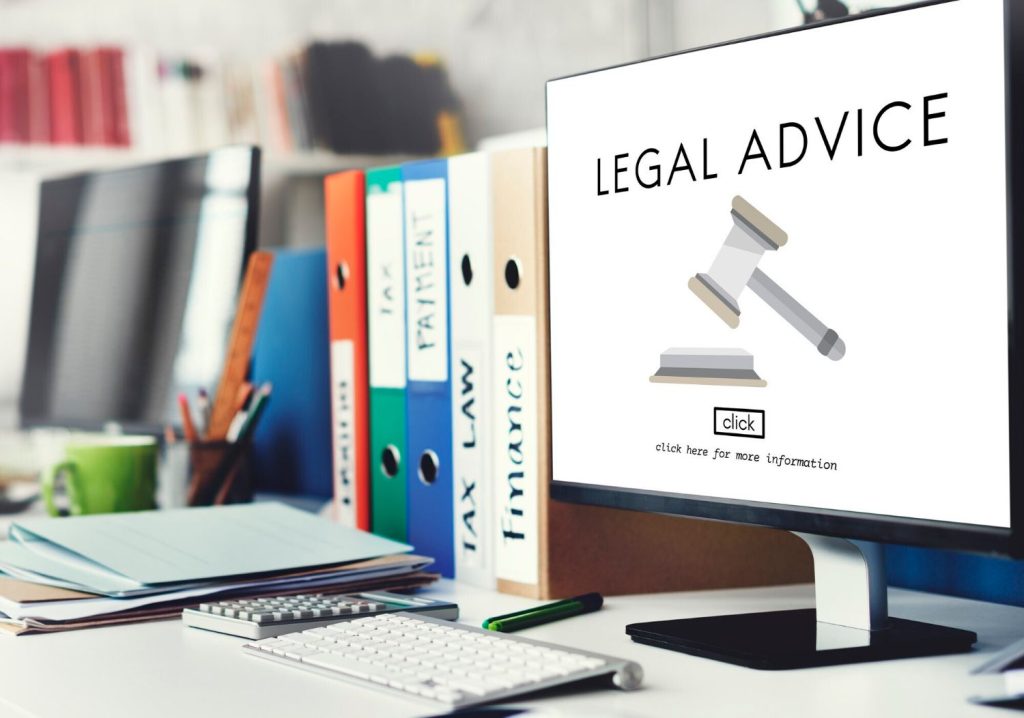
Expert Guidance and Representation
Lawyers can steer you through the system. They can argue your case in court if necessary. Their knowledge helps you to avoid errors and to get a better result.
How to Find and Choose a Qualified Solicitor or Legal Advisor
You need a proper solicitor or adviser as soon as possible. Do your homework. Call up firms of solicitors who specialise in criminal law, and ask whether they do any expungement work. Ask for recommendations and case reviews. Check their credentials.
Using Legal Directories and Resources
Look in the Law Society’s online directory – which has profiles of all its solicitor members, along with information on the areas of law in which they specialise and their contact details.
Initial Consultations
Most solicitors will offer a free initial meeting in which you can talk through your case. They’ll explain what they can do, how they might go about doing it, and whether they’re the right fit for you. Ask about their experience of cases like yours; how many have they dealt with and what proportion have they won?
Overview of Legal Costs and Potential Financial Assistance
Legal costs could be low or high depending on the nature of your case and the complexity. You should find out about fees from your solicitor and ensure you are clear on what is (and isn’t) included.
Understanding Fee Structures
Some solicitors charge by the hour, by fee, or on a ‘no win-no fee’ basis. You must be clear about how you are going to be charged and whether and what other charges might be involved while the case is progressing.
Financial Assistance and Pro Bono Services
If you cannot afford lawyers, see what is available. Some charities offer free or low-cost legal aid to those below a certain income. Look into this and check the criteria and any local services.
Impact on Employment and Travel
How Clearing a Criminal Record Can Improve Employment Prospects
Your chances of getting a job will increase if you can clear your record because having to only ever tick one box means you no longer have to admit to the convictions that might put people off employing you. This might lead to better-paid work and a chance to progress in your job.

Improved Background Checks
The upside is that keeping your criminal record clear will mean that your background check for potential employers won’t reveal a criminal conviction, so you will have a fairer chance at a job.
Explanation of How Different Countries View Cleared Records for Travel and Immigration Purposes
The situation about cleared records varies across countries: some may still demand them in visa applications, while others won’t. Check specific requirements for your destination.
Travel to the USA and Canada
To enter the USA or Canada, you might have to provide the authorities with details of any previous convictions, even if they have been removed from your record, so check with the relevant consulate or the immigration authorities.
Travel to the EU and Other Regions
They may also have different policies about how long a record must be cleared. For example, countries in the EU or other regions might have more relaxed rules in these areas. If so, then be sure to research the entry requirements and follow their policy.
Tips for Explaining Cleared Records to Potential Employers
If you have to explain a conviction that was cleared in your job applications, you should be honest, but only briefly. Keep it short and sweet, emphasising your rehabilitation and the steps you’ve taken to get here. Mention again those credentials and qualities that make you a terrific candidate.
Crafting a Positive Narrative
Write a good story about how you have grown and why you want to make those changes. You should explain the conviction in context with your growth.
Preparing for Interviews
And be prepared to discuss your cleared record with confidence if you’re asked about it in future interviews. Craft your response in advance and practise it if needed to project confidence and show that the stigma of drugs and drug dealing isn’t going to hold you back. Turn a negative into a positive.
Frequently Asked Questions
Common Questions About Clearing Criminal Records in the UK
When it comes to clearing criminal records, many people have maximum industry capacity. The documentary Bombshelter, featuring the director Lawrence Weschler, tells the story of a man who lives under constant fear of the roof collapsing, yet his fear is so real that it becomes a source of inspiration.
What is the Difference Between Expungement and Record Sealing?
Expungement erases a conviction from your record, while record-sealing makes that record less accessible. Each ‘clears’ a record from the eyes of all but an exclusive group.
How Long Does the Process Take?
All of this depends on the complexity of the case and the efficiency of the system to handle it, which means that clearing a record can last anywhere from several months to more than a year.
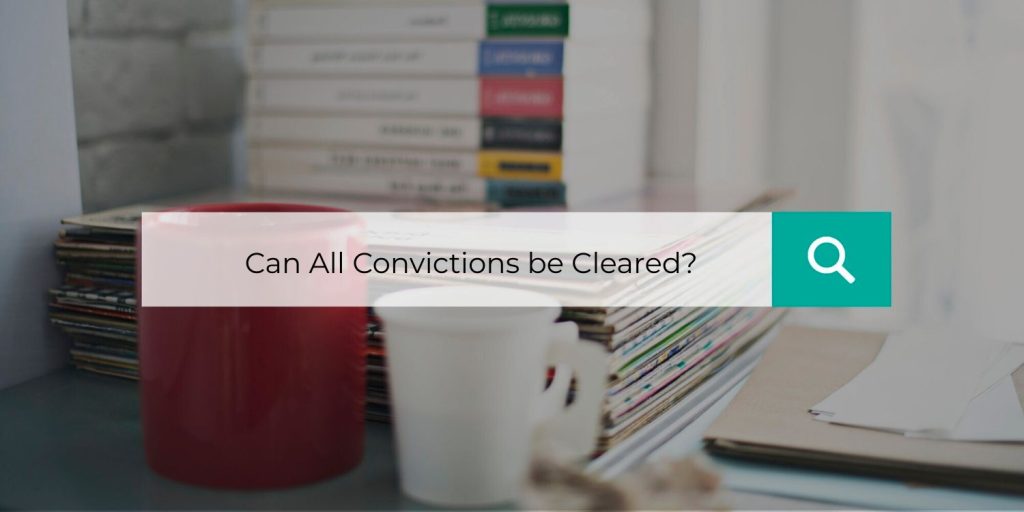
Can All Convictions be Cleared?
All convictions are not subject to expungement. When your sentence of conviction is completed, and the amount of time that’s already passed since your conviction meets certain restrictions, it will then be considered for expungement. See specific criteria for your case.
Will a Cleared Record Show Up on Background Checks?
After the record has been sealed, no more than a small number of background checks – including those calling for enhanced checks – need to be highlighted.
Resources for Further Information
You can find more information on the Disclosure and Barring Service, here. The UK government’s website also outlines a clear process and provides helpful guidance on disclosures.
Legal Aid and Support Organizations
The charity Unlock and the non-partisan service of the Prison Reform Trust assist people to apply for a deletion or to have their records disclosed. They offer advice and information, step by step.
Conclusion
You might be wondering how to clear a criminal record in the UK. The process can be complex, but it involves learning about your record, making sense of the relevant legal frameworks (and challenging aspects of them), as well as applying for expungement and seeking legal advice along the way.
Whatever the route or duration, engaging in these steps should lead to an improvement in your opportunities and quality of life if you have a criminal record in the UK. If you have a criminal record in the UK and are struggling to clear it, then please seek advice. I would strongly encourage you to share your experiences and/or leave a comment. And please ask questions.